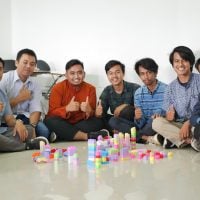Deadline: 12-May-23
The Google.org Impact Challenge: Tech for Social Good, an open call for European nonprofits, academic or research institutions, civic entities, and social enterprises in search of technical help and funding for projects focused around sustainability, economic opportunity, or cyber security.
These technical projects should also leverage the unique skill sets of Google.org Fellows (software engineers, UX researchers and designers, product marketers, data scientists, product managers, and program managers) to create tangible change.
For the first time through this year’s challenge, selected organisations will receive a Google.org Fellowship in addition to funding.
The Google.org Fellowship is a program that provides organisations with a team of Google employees (software engineers, product managers, user experience researchers, and more) who work alongside the organisation’s staff to build scalable solutions with lasting impact. A few examples of previous organisations receiving assistance from Google.org Fellows include Diagoriente, Full Fact, and Normative.
Benefit
- Successful applicants will receive up to six months of full-time pro bono support from a team of Google.org Fellows and up to €3M in funding to support their project.
Duration: They expect the funding to be spent over the course of 12 to 36 months.
Eligibility Criteria
- The Challenge is open to any not-for-profit charity, other not-for-profit organisation, public or private academic or research institution, civic entity, or for-profit social enterprise company with a project that has an explicit charitable purpose. Your organisation must have a registered office in your country of residence in Europe. Unfortunately, individuals without organisational affiliation are ineligible.
- Google.org Fellows are Google employees who leave their day jobs at Google to work pro bono for your organisation on a specific technical project alongside your organisation’s staff.
- In order for your Organisation’s Application to be considered:
- You must be an authorised representative of your Organisation
- Your Organisation must:
- have a registered office in one of the following countries: Albania, Andorra, Austria, Belgium, Bosnia and Herzegovina, Bulgaria, Croatia, Cyprus, Czech Republic, Denmark, Estonia, Finland, France, Germany, Greece, Hungary, Iceland, Ireland, Italy, Kosovo, Latvia, Liechtenstein, Lithuania, Luxembourg, Malta, Monaco, Montenegro, Netherlands, North Macedonia, Moldova, Norway, Poland, Portugal, Romania, San Marino, Serbia, Slovakia, Slovenia, Spain, Sweden, Switzerland, Ukraine, or the United Kingdom.
- be a not-for-profit charity, other not-for-profit organisation, public or private academic or research institution, civic entity, or for-profit social enterprise company formed under the laws of your country;
- If your Organisation receives a Fellowship or Funding:
- the Fellowship or Funding may not be used for religious instruction;
- the Fellowship or Funding must be used for charitable purposes;
Before applying ask yourself, will your project
- Have impact?
- How does your project address a societal challenge, and how will communities benefit? Is the proposal grounded in research and data? How can a team of Google.org Fellows and their unique expertise help accelerate outcomes and widen the proposed project’s impact?
- Be feasible?
- Do you have the resources, a realistic plan, and the expertise (such as technical staff and infrastructure) to make your project happen? Do execution plans account for how to effectively absorb and leverage the expertise of Google.org Fellows over six months?
- Use technology?
- What’s the magic that accelerates your solution, or enables new ways to address the problem? Solutions that responsibly apply AI, machine learning or data science are encouraged.
- Be sustainable and scalable?
- If successful, how will your project continue and grow beyond the support from Google.org? Proposals should include a plan for how your project will be sustained once the Google.org Fellowship is complete.
For more information, visit Google.org.









































